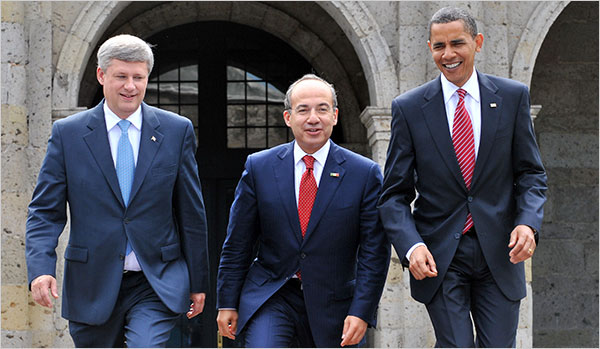| Want to send this page or a link to a friend? Click on mail at the top of this window. |
More Special Reports |
| Posted August 10, 2009 |
| National |
| Obama Says Immigration Changes Must Wait Till 2010 |
 |
|
JEWEL SAMAD/AGENCE FRANCE-PRESSE-GETTY IMAGES |
| President Obama with President Felipe Calderón of Mexico, center, and Stephen Harper, Canada's prime minister, at their summit meeting in Guadalajara on Monday. |
|
By GINGER THOMPSON |
|
and MARC LACEY |
| Wehaitians.com, the scholarly journal of democracy and human rights |
| More from wehaitians.com |